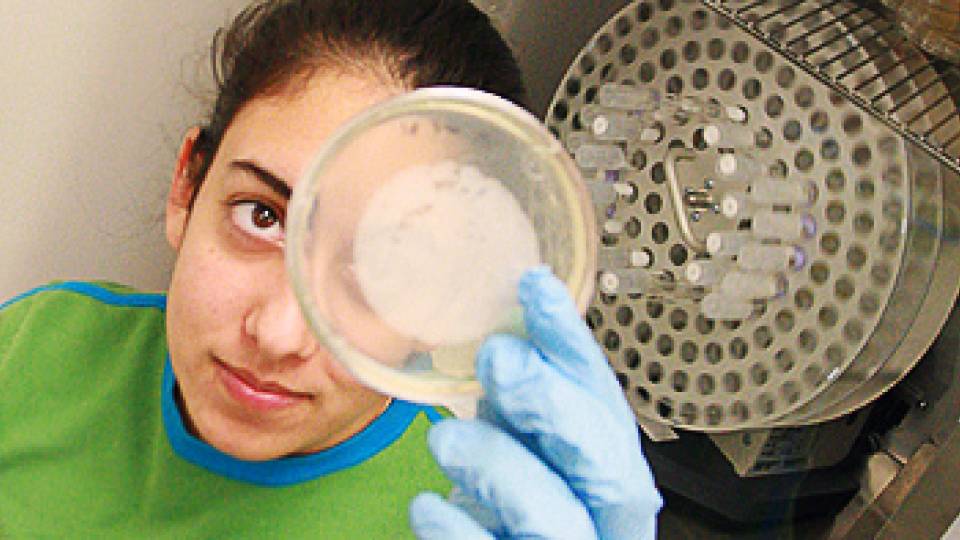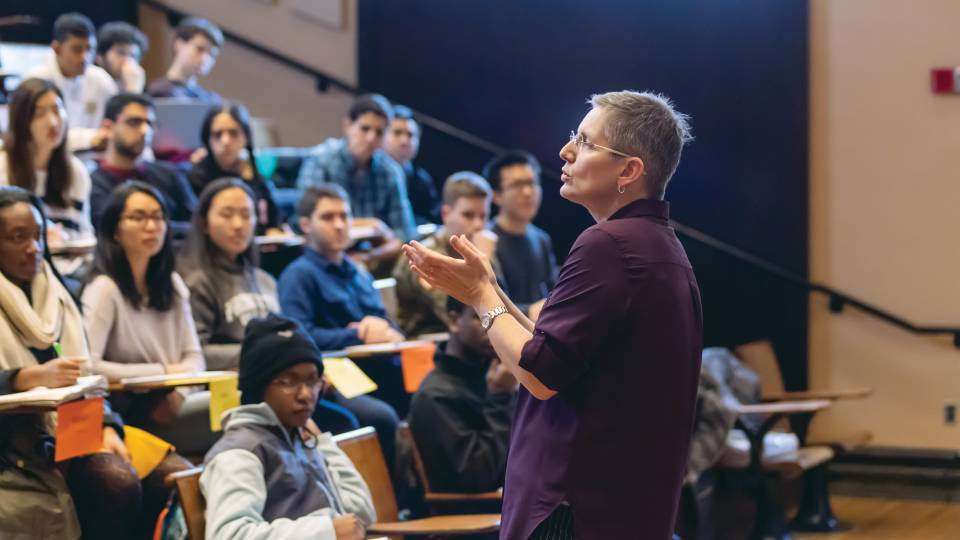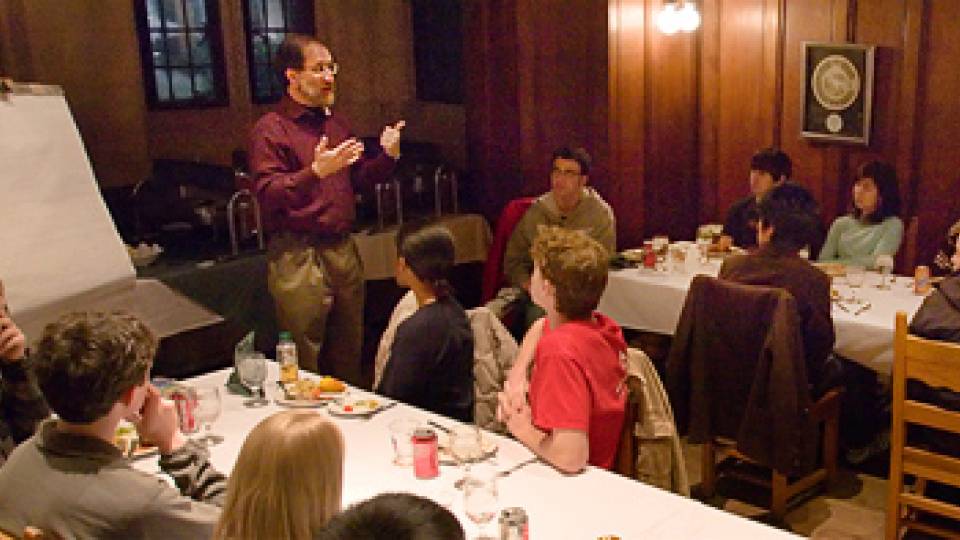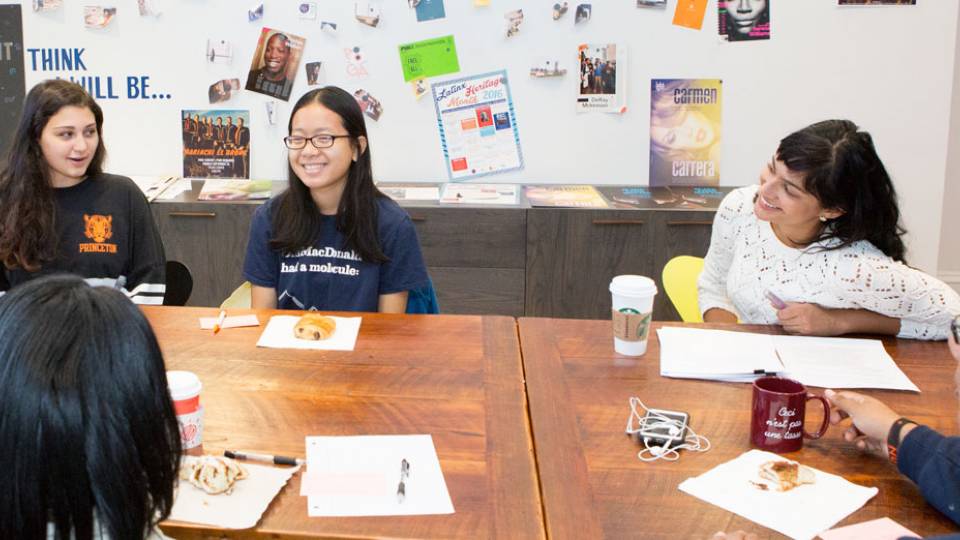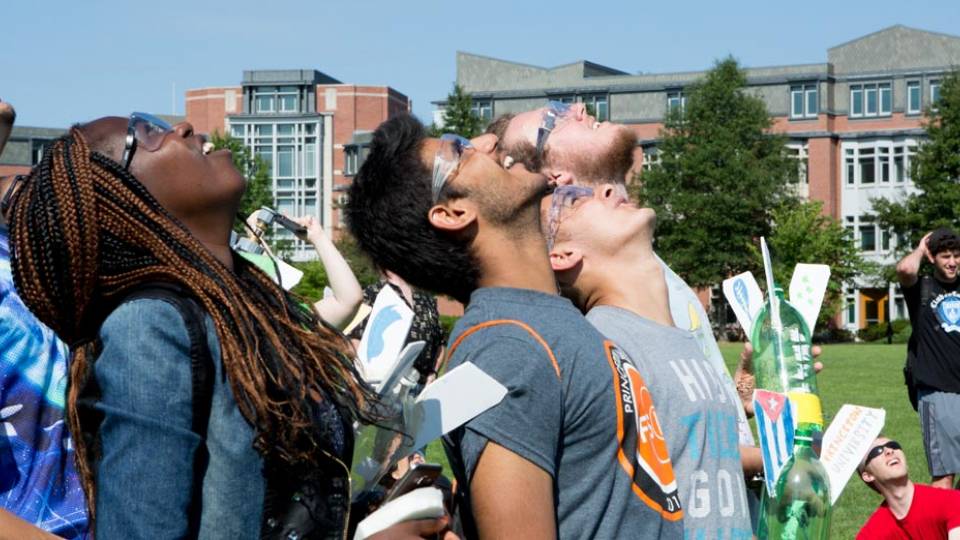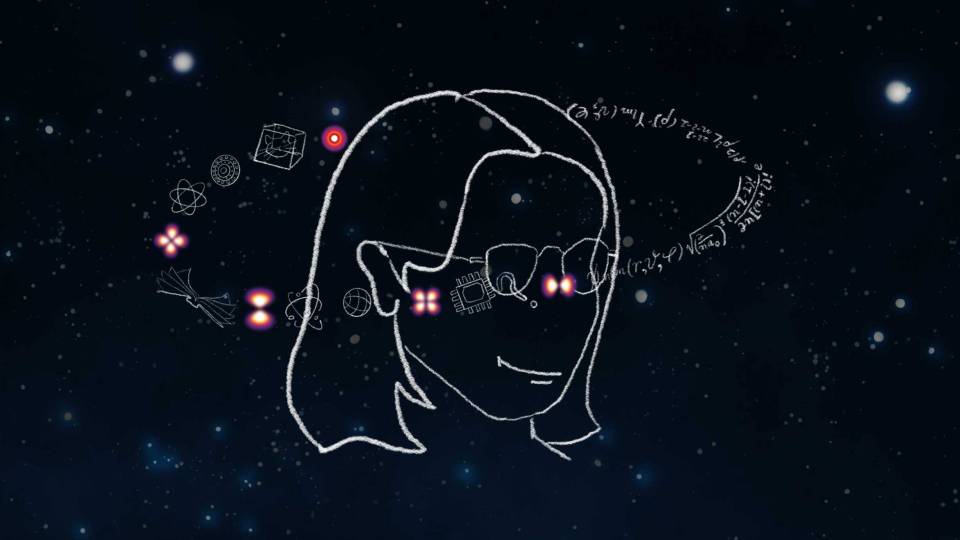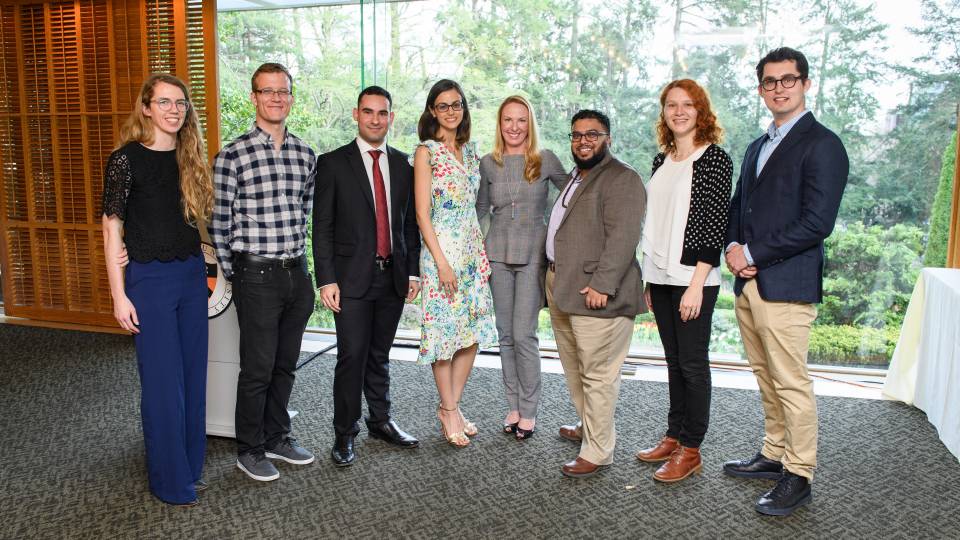Sitting in the front row of a "General Chemistry" class at McCosh last fall, tracking questions and taking notes as earnestly as any undergraduate, Ana Mostafavi was a reassuring fixture in one of the University’s biggest courses.
Her lecture hall presence as support and adviser was no accident. She is part of a new program called the Lecturer Corps.
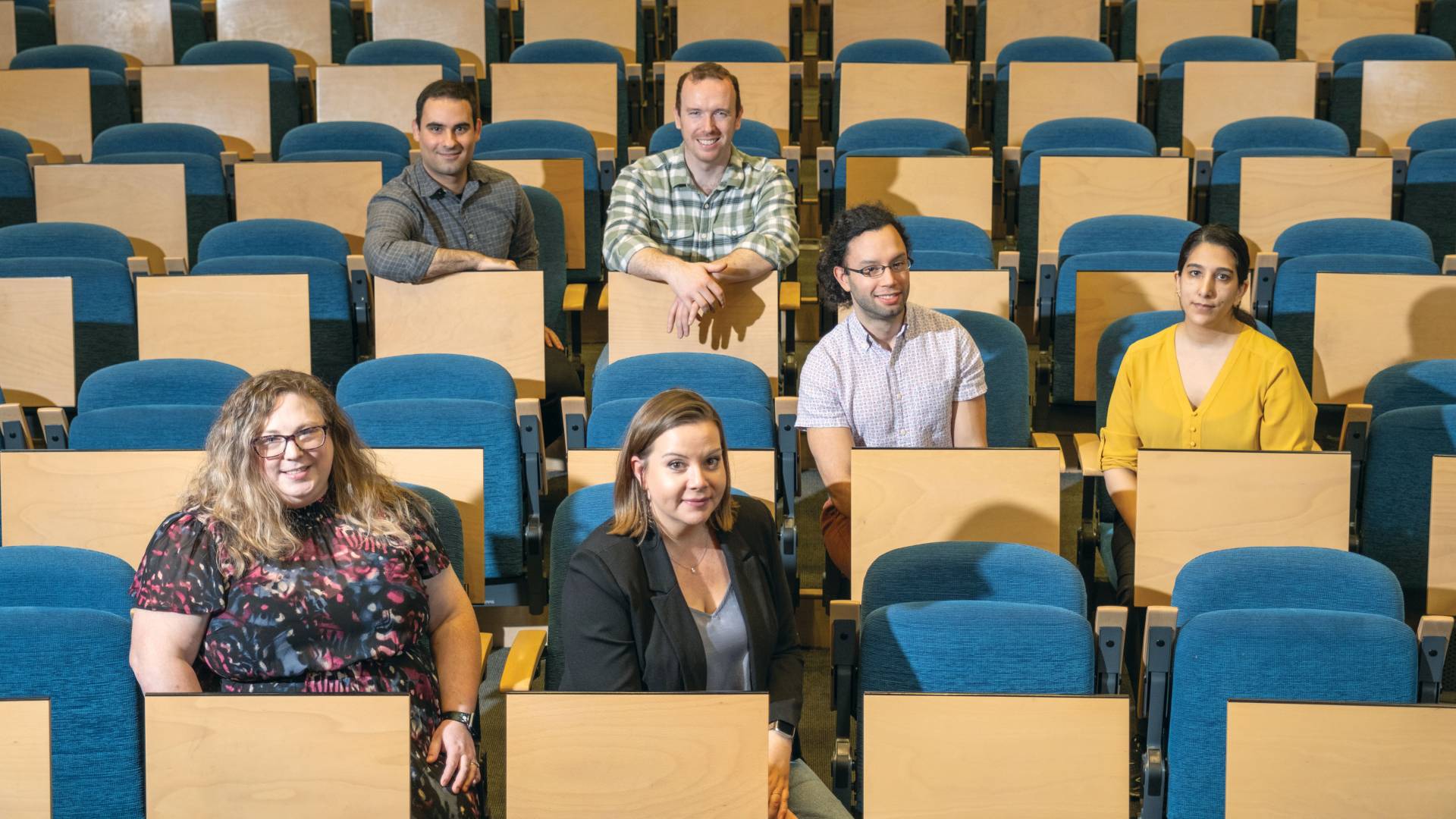
The Office of the Dean of the College has created a program with six new STEM lecturers. Pictured here, they are (starting back row): David Villalobos and John Sheridan, math; Ana Mostafavi and Corey Clapp, chemistry; Grace Bosse and Katharine Moran, physics.
Conceptualized by the Office of the Dean of the College, the program puts highly credentialed master teachers front-and-center in the University’s foundational STEM courses. While enrollment in these courses is surging among undergraduates, many arrive on campus with different levels of preparation that can make classwork more arduous than it needs to be.
With six new lecturers across chemistry, physics and math, the Corps meets students where they are. "We’re able to think critically about what the issues are and develop solutions to enrich student learning," said Mostafavi, a lecturer in the Department of Chemistry.
“Having the administration recognize this kind of need is quite significant," she said. "They’ve hired us to help students succeed."
Over multiple hours and on multiple days, these lecturers hold problem-solving precepts, lead sessions on foundational concepts, offer guidance on course sequences, work with the faculty, and generate new resources that students—many of whom must take these classes as prerequisites for other concentrations—use to bolster their grasp of the coursework.
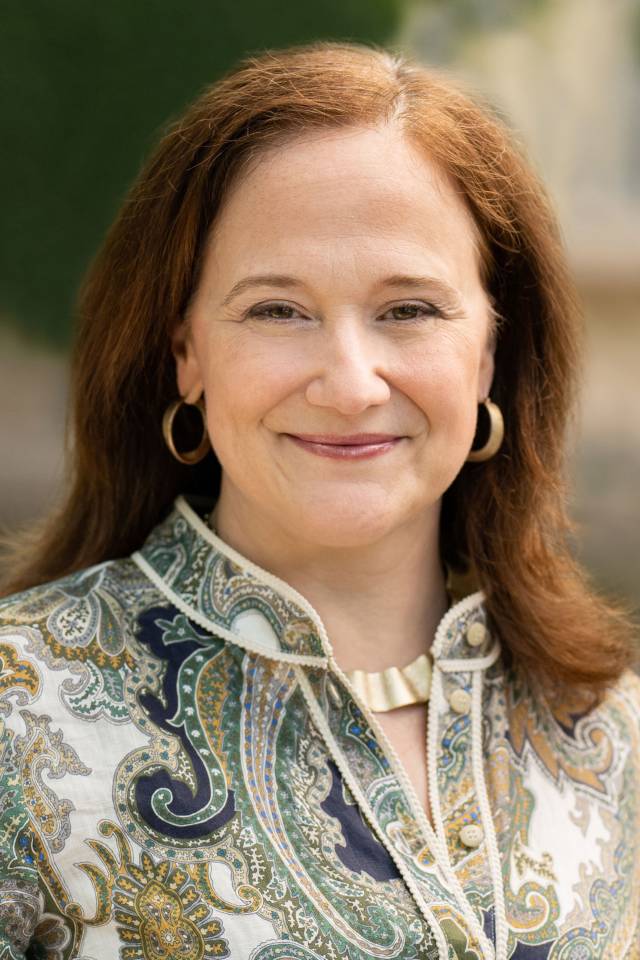
Elizabeth Colagiuri
Elizabeth Colagiuri, deputy dean of the college, said the program emphasizes pedagogy and curricular interventions. Undergraduates frequently change their majors: the College wants to make sure that’s because they’ve found something more appealing, not because the coursework has derailed them.
“We’ve been looking for ways to build out the on-ramps into STEM for students who may be coming to Princeton with less preparation. How do we create better and potentially longer on-ramps for students who may need that? How do we invest in good teaching and pedagogy to really figure out what is needed?” said Colagiuri.
“Math, physics, chemistry: these are subjects that many, many students at Princeton take because they are prerequisites for a whole lot of things you might major in at Princeton. If a student can’t get the foundational coursework done, then it’s hard to keep going into the other things they need to do.”
A flexible corps
By design, each of the three departments has the freedom to deploy lecturers as they see fit so that the pedagogy follows real-time needs.
Lecturers in the Department of Physics, for example, are focusing on updates to a series of hallowed student learning guides, as well as a summer course designed by a professor to provide an alternative, three-semester pathway for students who may need more time to develop their skills in the introductory physics sequence, said lecturer Katharine Moran, who works alongside lecturer Grace Bosse.
“This provides a useful experience intended to get them back on track without having to retake a whole year of physics,” said Moran. They are also looking into initial and ongoing assessments to better understand the "width" of the on-ramp.
David Villalobos is a lecturer in the Department of Mathematics along with John Sheridan. They’ve created a series of self-placement workshops to help students identify where they fall in the hierarchy of essential skills.
“Many students come in with different math backgrounds, yet simultaneously want to get their major’s math requirement out of the way as soon as possible,” said Villalobos. “This has led to our amped-up advising presence for the first couple of weeks of the semester.”
In addition, he said, the department has extended the ability for students to move between classes until the fourth week of the semester. This reshuffling option can help land people where they need to be.
Beyond that, the biggest factor in student success is time during the semester, so summer classes are proving especially beneficial.
“Many students who struggle with our classes in the academic year suddenly turn things around and do very well in the summer,” said Villalobos. “Still, we are exploring ways to make our summer classes more appealing, making them six rather than nine weeks long this year so students can pursue other activities.”
In chemistry, ‘more connecting’ in big lectures
It was during his postdoc work in chemistry at Harvard University that Corey Clapp really started thinking about how science education can enrich individual lives, even for those who don’t plan to stay in a STEM field.
That thinking guides his work today as a lecturer in chemistry.
“Education is the primary means through which we realize our vision for society, whatever that might happen to be,” said Clapp. “The best of the American ideals of an egalitarian reality will only happen through a quality education for everybody."
Lecturers across disciplines share ideas with each other, Clapp said. "Seeing different perspectives and how different departments have taken other approaches really benefits us in trying to figure out the reasonable next step to get students where they need to be.”
Professor of Chemistry Michael Hecht said the addition of the lecturers gives him more latitude to do what he does best: teaching.
“It allows me to give more attention to the lectures and the course as a whole because I had Ana’s assistance. She was keeping an eye on things. On many of the details, she was mentoring, she was precepting, she was helping to organize and write the exams,” said Hecht.
“It freed me up to do a lot more connecting with students in the big lectures. Princeton has the resources for these kinds of programs, and it helps. And that’s a good thing, right?”
